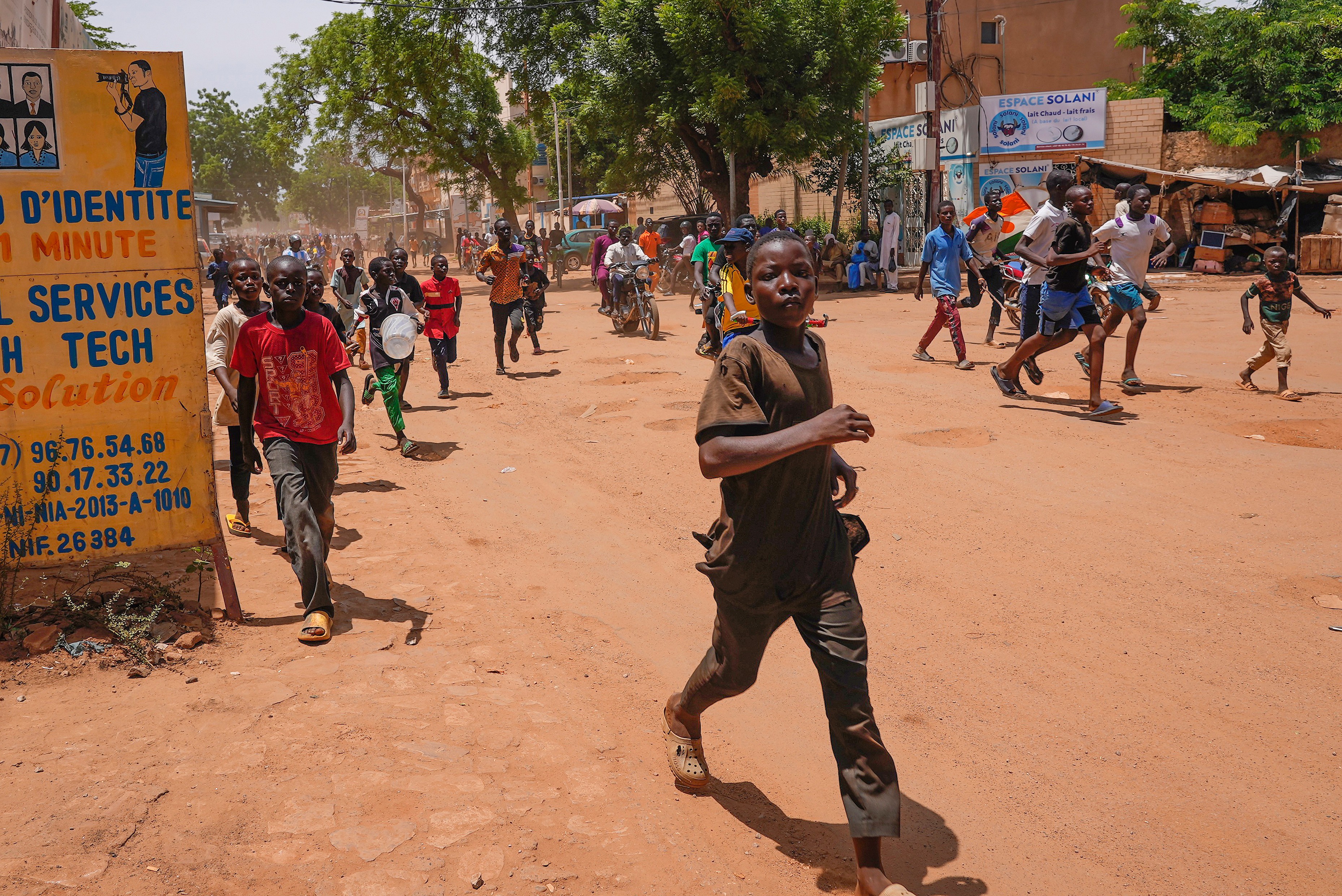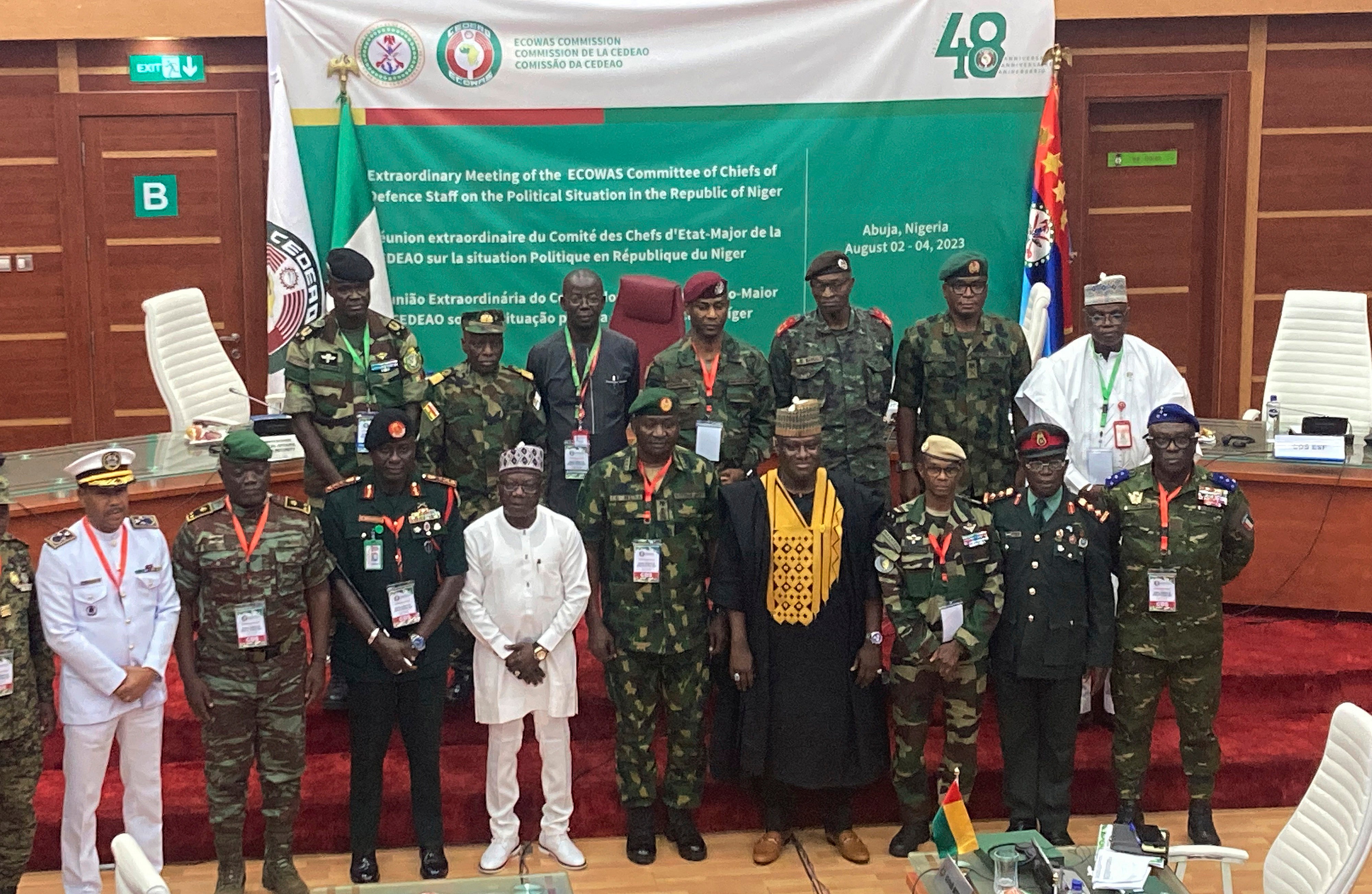NIAMEY, Niger (AP) — West African defense chiefs met Thursday to discuss the crisis in Niger after coup leaders there ignored their deadline to step down, leaving the region’s countries with few options in their effort to restore democratic rule.
Niger’s democratically elected president, Mohamed Bazoum, was overthrown in July and remains under house arrest with his wife and son in the capital, Niamey.

Defense chiefs from the West African regional bloc, ECOWAS, were meeting Thursday in Ghana to discuss next steps in their stated goal of restoring Bazoum. Coup leaders in Niger already have ignored a deadline to restate him or face military intervention.
This is the first meeting since ECOWAS ordered the deployment of a “standby force” last week to restore constitutional rule in the country. It’s unclear if or when troops would intervene. A force would likely consist of several thousands soldiers from Nigeria, Ivory Coast, Senegal and Benin and could take weeks or months to prepare, say conflict experts.
ECOWAS has a poor track record in stemming the region’s rampant coups: neighboring Burkina Faso and Mali have each had two within three years. Niger’s coup was seen by the international community and ECOWAS as one too many and in addition to threatening a military invasion, the bloc has imposed severe economic and travel sanctions.
But as time drags on with no military action and a standstill in negotiations, the junta is entrenching its power, leaving ECOWAS with few choices.
“ECOWAS has few good options … particularly as the (junta) seems unwilling for the moment to cede to outside pressure,” said Andrew Lebovich, a research fellow with the Clingendael Institute, a think tank.
“An intervention could backfire and damage the organization in numerous ways, while a failure to extract major concessions from the (junta) could weaken the organization politically at an already fragile time,” he said.
The top security body of the African Union met Monday to consider whether it would support military intervention but has yet to make public its decision.
The AU’s Peace and Security Council could overrule a military intervention if it felt that wider stability on the continent was threatened by it. If it rejects the use of force, there are few grounds under which ECOWAS could claim legal justification, said Lebovich.
But on Thursday, Abdel-Fatau Musah, the ECOWAS commissioner for peace and security, told reporters that the bloc was working with the United Nations on Niger’s situation and didn’t “need any approval from the Security Council to find a solution to the crisis.”
In recent years, Western countries have poured hundreds of millions of dollars of aid into Niger, which was seen as one of the last democratic countries in the Sahel region south of the Sahara Desert that it could partner with to beat back a growing jihadi insurgency linked to al-Qaida and the Islamic State group. France and the United States have approximately 2,500 military personnel in the country, which trained soldiers and, in the case of France, conducted joint operations.

Since the coup, both countries have suspended military operations, which Sahel experts say is leading to an increase in attacks.
On Tuesday, at least 17 Nigerien soldiers were killed and nearly two dozen wounded in the Tillaberi region in the biggest attack by jihadis in six months. Former militants have told The AP that active jihadis would leverage the coup to move around more freely and plan further violence while Niger’s security forces are distracted in Niamey and Western assistance has halted.
Displaced people who fled jihadi violence and are now living in makeshift huts in Niamey say they’ve suffered enough from the extremists. They don’t want more problems from their neighbors.
“I ask God not to bring (ECOWAS). We lost more than 600 people (from jihadi violence). I support the military, and God curse anyone who doesn’t love Niger,” said Daouda Mounkaila. Last year he, his wife and their 11 children were chased from their home in Tillaberi, one of the hardest-hit regions in the country.
Others in the capital are trying to cope with the impact of the ECOWAS sanctions.
Niger relies on neighboring Nigeria for up to 90% of its energy, which has in part been cut off. The streets are littered with generators powering shops. Restaurant owners say they can’t keep their fridges cold and have lost customers.
The sanctions are making it hard for aid groups to get food and supplies in. Before the coup, more than 4 million people in Niger — a country of some 25 million — were in need of humanitarian assistance, a number that’s now expected to surge, say aid groups.
Trucks are stuck at the borders with Benin and Nigeria. Routes through countries that have ignored the sanctions, such as Burkina Faso, are dangerous because they’re infiltrated with extremists.
“With the closure of land and air borders, it’s hard to bring aid into the country,” said Louise Aubin, the U.N. resident coordinator in Niger. Supplies such as food and vaccines could run out. It’s unclear how long the current stock will last, she said.
TheGrio is FREE on your TV via Apple TV, Amazon Fire, Roku, and Android TV. Please download theGrio mobile apps today!

